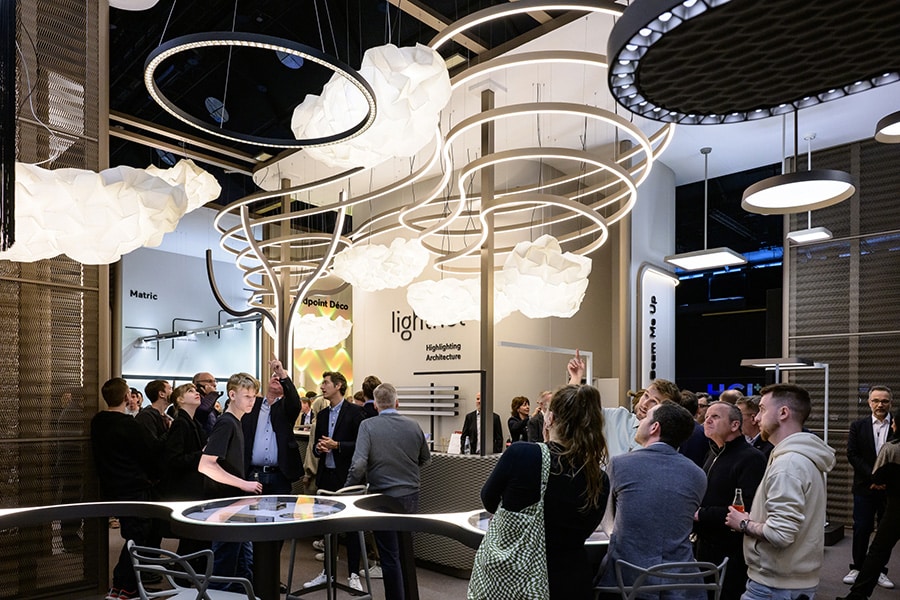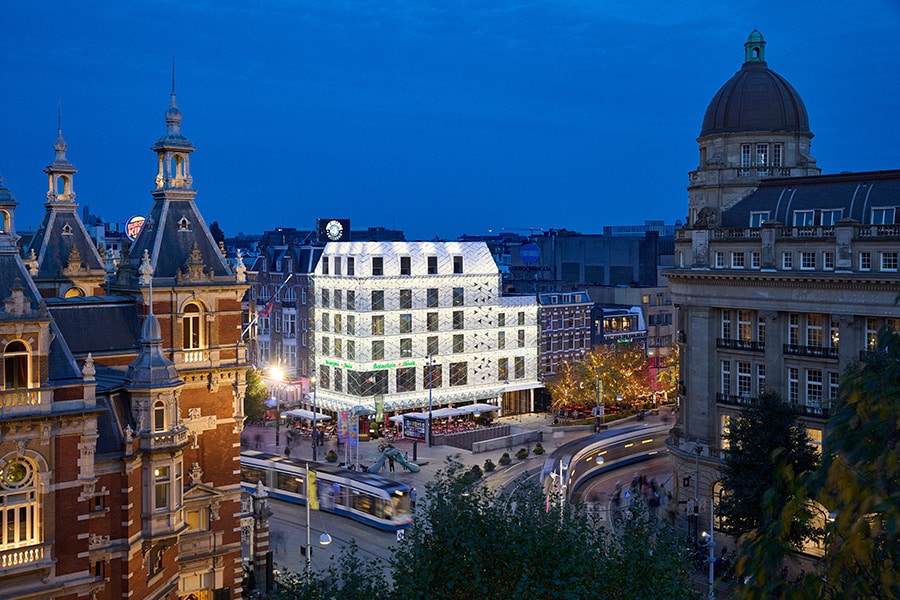
Natural ventilation and shading: the key to a healthy and comfortable indoor environment
"Both a fully mechanical balanced ventilation system and a system with a natural supply of fresh outside air have their advantages and disadvantages, in our opinion, but we were charmed by the cleverness of a system C+ where you can control perfectly according to the amount of fresh air you need," they testified.

"The advantage of such a smart ventilation system is that you always have fresh outside air available indoors, but at the same time you will never bring in more (colder) air than necessary. In a traditional system, the exhausted, polluted air simply goes outside, but we chose Renson's version where that dirty warm air passes over a heat pump to recover that heat for hot water and floor heating. That, combined with a solar installation ensures that in terms of E-level, we managed to get even below E20."

The residents deliberately chose to provide drainage in the bedrooms as well: "In the end, we were very satisfied with that because we noticed that the indoor climate in the bedrooms improved quite a bit at night."
Large windows, by the way, were a must for them to be able to bring in lots of daylight, but that did mean they had to take some measures to stay ahead of the risk of overheating indoors: among them was the conscious choice of outdoor blinds. "On hot days, we leave those screens down from as early as the morning," it sounds. Or also, "If the sun starts to shine during the day, we can even lower the screens from a distance."
"The result is that we come home to pleasant indoor temperatures every evening. The great advantage - even with the screens down - is also that you can still look outside. You never feel trapped. By the way, by taking this sun protection into account from the very first design, the fabric boxes and side guides of the screens are invisibly built into the facade. And that adds to the sleek look of this new construction home."






